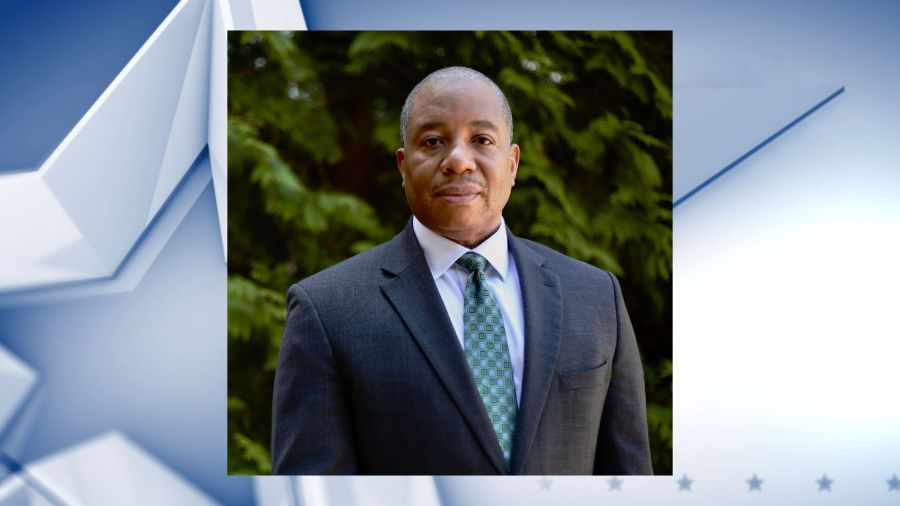Maurice (Mo) Green is a candidate for North Carolina Superintendent of Public Instruction. His name will appear on the ballot on November 5, 2024.
Green is being challenged by Michele Morrow for the seat.
The first day of in-person early voting at your local registrar’s office in North Carolina is Oct. 17, 2024. NC voters can check their registration status using the Voter Search tool on the State Board of Elections website.
10 On Your Side reached out to all of the candidates running in this race, with a request for a bio and a list of questions to answer. If you do not see the candidate listed with a profile, we did not receive one.

Name: Maurice (Mo) Green
Age: 57
Race: North Carolina Superintendent of Public Instruction
Party: Democratic
Website: www.mogreenfornc.com
Biography: About Maurice (Mo) Green: Mo Green is running to be North Carolina’s next State Superintendent of Public Instruction, the chief administrative officer for North Carolina’s public school system. Mo has been a champion for public education in North Carolina throughout his professional career. He served more than seven years as superintendent of Guilford County Schools, the third largest district in North Carolina, earning accolades for his innovative leadership and reforms. Before Guilford County Schools, Mo worked as Chief Operating Officer/ Deputy Superintendent and General Counsel in Charlotte-Mecklenburg Schools, one of the largest districts in North Carolina. He led a philanthropic organization in North Carolina that supports public education and has served on numerous boards dealing with a host of educational issues including homelessness, athletics, policy, media, arts and community support. He is committed to ensuring all students in public schools receive a high quality education, advocating for substantial investments in public education, making North Carolina a better state for educators, and ensuring students have safe and secure learning environments.
Why are you running for office?
I am running because I am deeply concerned about the current direction of the North Carolina Public School system. It is woefully underfunded, even while funding for a taxpayer funded private school voucher program is being increased dramatically. Its educators are belittled through low pay and respect. Statewide student academic performance must be improved, and we must have a vision of excellence. North Carolina public schools need a champion who will provide a new vision. Given my experiences, I believe I can be that champion.
If you are elected, what will be your top priority in office?
Our public school educators are the backbone of public education. They are currently undervalued, underpaid, and underappreciated in North Carolina.
As a result, a top priority will be supporting efforts to increase pay for public school educators. We must return North Carolina to a state that reveres educators. Teaching is a noble profession, but our state has woefully underpaid and consistently disrespected our educators. They play a pivotal role in our children’s lives, and we must pay them more and give them the appreciation they deserve. At a minimum, educators must receive pay raises in their base compensation to at least the national average. We also must ensure they have access to the professional development needed to perform their duties at the highest levels of excellence, improve their working conditions and be sure that they are led by strong, effective leaders.
What is the top challenge facing North Carolina, and how would you address it?
Running some of our state’s biggest school systems, I gained experience working with all types of people in order to achieve remarkable things on behalf of children. Currently, the biggest challenge I will face if elected is the overall lack of funding for our public schools. We are already funding public schools over $5,000 per student less than the national average and $3,000 to $4,000 per student less than Virginia and South Carolina.
While the lack of funding is a challenge, there are others, most of which I have dealt with before. As an example, when I first started as Superintendent at Guilford County Schools, one of our greatest challenges was the number of “low-performing schools” under a prior accountability system. We had the most in North Carolina. It is a testament to the collaboration and willpower of the staff, community, parents and students that those low performing schools were turned around and were no longer designated low performing under that prior accountability system.
Challenges similar to what I faced when I started in GCS related to overall student achievement currently exist across the state, as is highlighted with the state’s current accountability system. In addition, I think current students are dealing with even more mental health and social/emotional challenges as a result of the COVID pandemic.
I will apply my leadership theory to listen, learn, and then lead (called “Mo Wants to Know”) when faced with any challenge that arises.
What is an issue in North Carolina you feel not enough people are talking about it? How would you use the power and influence you’d have in this position to address it?
The NC Superintendent of Public Instruction serves as the chief administrative officer and, I contend, the chief advocacy officer for public schools in North Carolina. I think that if you want to run our system of public schools and advocate for them, you should believe in them. I bring experience with and belief in our public schools.
I will use the power as State Superintendent to advocate against the taxpayer-funded private school voucher program. This program gives government vouchers for families using private school tuition. The income cap to receive a voucher was removed by the legislature in 2023; so it’s a relatively new change to the program that some people don’t know about or talk about. I hope to use the platform to raise awareness about its detrimental effects on public education in North Carolina.
I am opposed to the taxpayer-funded private school vouchers. My opposition grows exponentially when these types of programs are allowing wealthy families, who can already afford to pay the tuition for private schools, to receive vouchers.
North Carolina’s taxpayer-funded private school voucher program diverts desperately needed funds from students in our public schools. Our state is, sadly, already 48th in the nation in funding for public education. Its educators are woefully underpaid, making it extremely challenging for our state to meet its constitutional mandate to provide a system of free public schools where all students can receive a sound, basic education. The current legislative action through House Bill 10 – to spend an additional $463 million taxpayer dollars on more private school vouchers for the wealthiest of North Carolina families – will only make the ability to meet this obligation worse.
How do you work with others you don’t agree with?
To bridge political differences and buy in from all stakeholders, including educators, district staff, families, and policymakers, I will apply my decades of leadership experience where my overall strategy is to listen, learn, and then lead. I have a track record of bringing communities together – beyond political differences – to achieve remarkable things on behalf of students. This moment goes far beyond political affiliation – this is about the well-being of our children in public schools and the future of our state.

























































